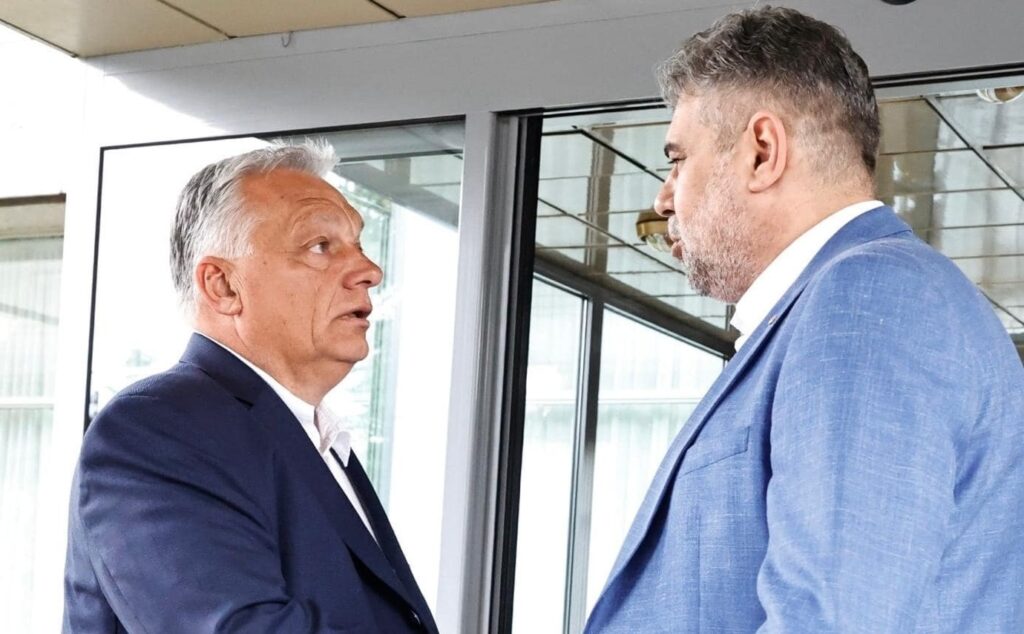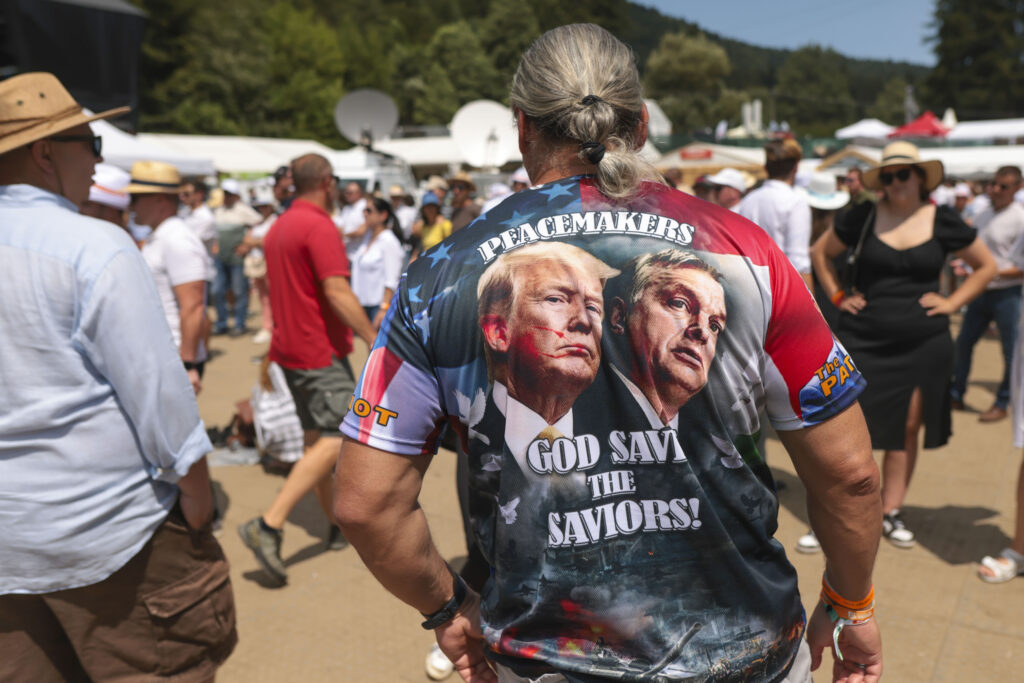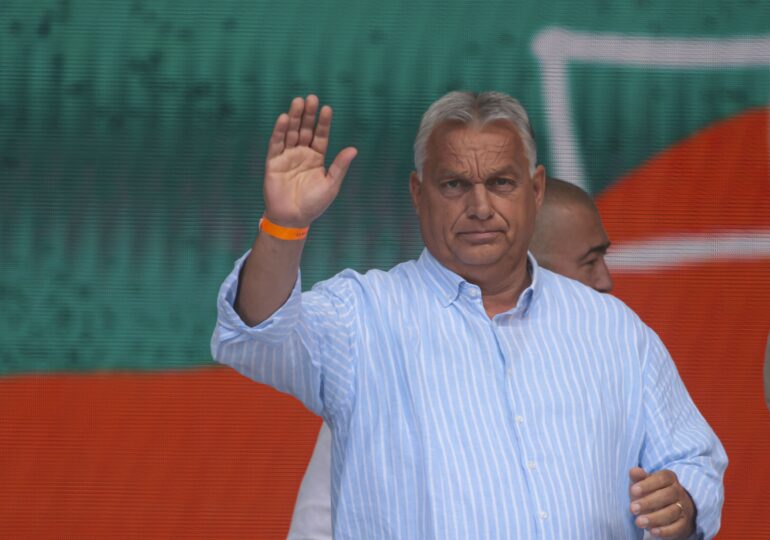During summer, Viktor Orban usually comes to Băile Tușnad, where he delivers a controversial speech, putting the authorities in Romania in difficulty.
The Hungarian Prime Minister, through his position, only maintains the tension between Hungarians and Romanians in Transylvania, tension that fuels popular support for his political vision.
And this year’s speech was one that sparked disputes at internal, regional, and continental levels.
"... it depends on Europeans to come to their senses before it's too late. Trump is at the gate. If by then Europe does not switch to a policy of peace, then, after Trump's victory, it will have to do so by acknowledging its defeat, covered in shame and acknowledging exclusive responsibility for its policies," stated Viktor Orban in Tușnad.
The Polish diplomacy strongly reacted to the vision presented by the Hungarian leader in Romania, and through the voice of Teofil Bartoszewski, the Deputy Foreign Minister, questioned "why Hungary insists on remaining a member of the European Union since it does not like it and considers it treated so poorly."
What Viktor Orban Said about Romania
Marcel Ciolacu, the Prime Minister of Romania, stated that he had not seen or read the speech, ironically asking reporters if Orban said anything about Romania.
Viktor Orban did not directly mention our country, but he expressed his vision of Greater Hungary and the importance of Hungarians being united and having aspirations beyond the country's borders.
"From another point of view, we need a pan-Hungarian approach, because looking at these issues only from the perspective of a 'Small Hungary' would be too limiting. Therefore, it is justified to discuss these issues in front of Hungarians outside our borders," stated Viktor Orban.

This summer, the Romanian government played the role of peacemaker while Orban played the role of instigator.
The Romanian government's strategy of not escalating only encourages Viktor Orban.
It is unpleasant to observe that the executive in Bucharest has no solutions to limit his influence in Transylvania, endangering the peace and tranquility of the country.
I spoke with President Trump and he asked me how I was doing. I told him very well because I am here, in a geographical entity called Transylvania. Explaining this is not so easy, especially in English and especially to President Trump. But I told him that I am here, in Transylvania, at a free university where I was supposed to give a presentation about the state of the world.
Viktor Orban, Prime Minister of Hungary, speech in Băile Tușnad
The fact that Marcel Ciolacu has no solutions to the Orban issue leads to the fueling of AUR nationalism and the increase in support for the extremist party.
Focus on Putin and Trump
At this moment, Viktor Orban has become more popular among Hungarians in Romania than among those in Hungary.
In Budapest, facing increasing pressure from the Opposition, the Hungarian Prime Minister chose Romania to promote his anti-NATO and anti-European Union theories.
FIDESZ, Orban's party, although winning the European elections with 44%, achieved the weakest result in the last 20 years, while the movement led by Peter Magyar, the opposition leader, scored 30%.
In a complex international context, Viktor Orban received a gift. For six months, Hungary holds the presidency of the Council of the European Union, a position that rotates among each member state.
If we carefully read European documents, it is clear that the goal is to replace the nation. It is true that they have a strange way of writing and saying this, stating that national states must be replaced, while a small trace of them remains.
Viktor Orban, Prime Minister of Hungary, speech in Băile Tușnad
The Hungarian Prime Minister uses this position to promote himself as a global leader, trying to relaunch his increasingly contested career in Budapest.
Orban made a bet. He bet on Putin and Trump because a Kremlin victory in Ukraine, coupled with a return of the Republican leader to the White House, would be a long-awaited opportunity for Budapest to reopen the debate on redrawing new borders in Europe.

Viktor Orban's calculation is simple, cynical, and pragmatic. If Putin and Trump win, he wins too, thus being at the forefront to take a significant share both economically and strategically.
If Putin and Trump lose the game, Hungary will not suffer, being protected as a NATO and European Union member state.
"Therefore, war, through its relentlessness, places us in a new position from which to see things, from a high observation point. And from there, it offers us a completely different perspective - unknown until then. We find ourselves in a new environment and in a new, rarefied field of force," said Viktor Orban in his speech in Tușnad.
"In this pure reality, ideologies lose their power. Statistical tricks lose their power. Media distortions and politicians' tactical concealment lose their power. There is no longer any relevance for the illusions spread - or even for conspiracy theories. What remains is the raw, brutal reality," he added.
Why Romania Needs to Worry
It is precisely this cynical, pragmatic, and politically survival-oriented vision that should worry Romania.
Viktor Orban is willing to do anything to fuel the expansionist aspirations of Hungarians.
War has revealed that the biggest problem the world faces today is the weakness and disintegration of the West. Of course, this is not what Western media say: in the West, it is claimed that the biggest danger and the biggest problem in the world is Russia and the threat it poses.
Viktor Orban, Prime Minister of Hungary, speech in Băile Tușnad
According to statements from Warsaw, he is an enemy of the European Union, unscrupulously aiding the Kremlin regime that invaded an independent state.
A victory for Putin in Ukraine for Orban only means a reason to question the Treaty of Trianon.
Once again, this shows how important it is for our country to rapidly develop its capacity to be a regional player in terms of NATO security, to strengthen its relations with Poland and the Baltic states to the north, Bulgaria and Greece to the south, to form a protective barrier against Russia and isolate Viktor Orban's political regime.

